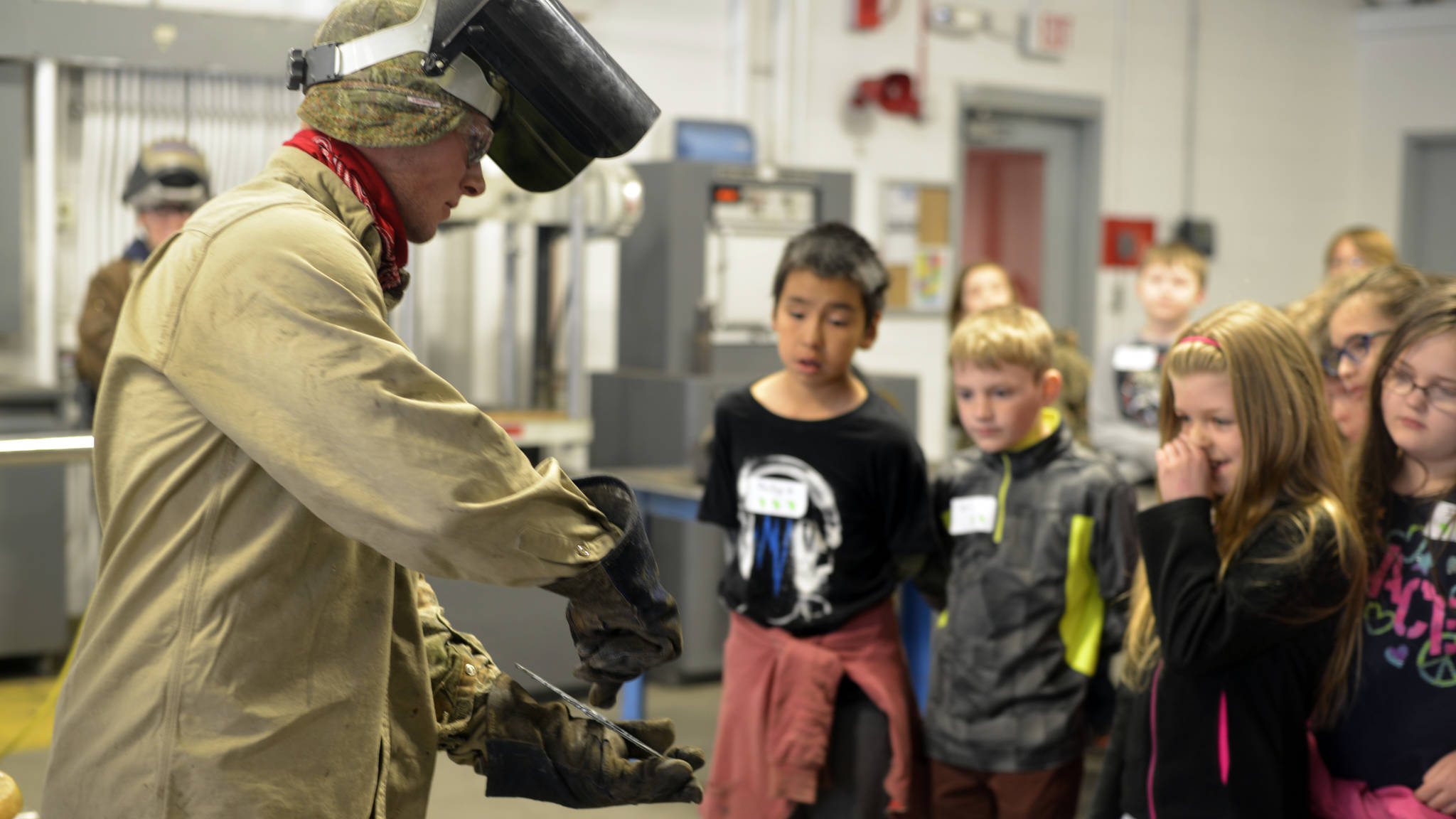Here is what fourth-graders know about college.
“College helps you get a better job,” “there’s a lot of knowledge there and you can make things” and “you get diplomas.”
Here is what fourth-graders want to know about college.
“What jobs can you get after college?,” “what do you learn in classes?” and “are the dorm rooms comfortable?”
On Friday morning, a group of fourth-graders from Mountain View Elementary visited Kenai Peninsula College to answer some of these questions and add to the list of things they know about higher education.
The students took part in an aspiring workforce program and were able to tour the campus’s emergency medical technician lab, the welding lab and the process technology lab — giving them a hands-on experience and knowledge of each field.
“Our kids are in school and our teachers do a great job inspiring them… but there is that other piece that, as you get older and go on in school, there is a reason for school, to help you move on in life,” Mountain View Elementary Principal Karl Kircher said. “Why not get that message out to them even earlier?”
The students started the day with a presentation from college recruiter Emily Knight, who explained to the students the basics of continuing education, before having the students break into three groups to explore the campus.
“Having the students here on campus is a great way for us to talk to them about coming to KPC in the future,” Knight said. “It’s a way to start the conversation at home… That’s why days like this are important.”
The students started their exploration of the campus in one of three different specialties.
In Jacob Keisling’s welding shop, they saw sparks fly and bars bend.
“In here, we make metal melt,” Keisling said. “Every metal thing you see has to be made.”
Two of Keisling’s current students demonstrated the different techniques taught in the college, each demonstration being met with “oohs” and “aahs” from the elementary school stuents.
“If you pass a final exam (in welding), you can travel anywhere in the world, because metal is everywhere,” Keisling said.
From metal to ambulances, the students were also able to visit with Paul Perry, assistant professor of paramedic technology.
“We teach people how to work on ambulances, how to be firefighters and paramedics,” Perry told the students, while introducing them to a dummy victim named Mary.
“Mary isn’t feeling too good and we have to figure out why… Students get grades just by being nice to Mary, that’s the kind of things you learn here,” Perry said.
The students helped Mary through her pregnancy before moving on to performing CPR. While surrounding a second mannequin, the kids took turns pounding at the doll’s chest, looking for a pulse, until one student was able to start the heart by simulating a defibrillator.
“You saved him,” Perry said.
The final stop brought the students to the process technology lab, which they toured while donning hard hats and safety goggles.
“The main focus is oil and gas, but you can get into water, waste, food processing, beer brewing, pretty much anything that involves processes,” Knight said.
After getting hands-on experience in the classrooms, the students were able to answer more of their college related questions with a tour of the school’s residential hall.
“We hope they come back with a renewed interest on learning and dreaming, a hopefulness for the future,” Kircher said. “We want them to see that there is something out there to aim towards, if its welding, process tech, fire department. We want to give a goal for school, a reason for it and a hopefulness… to get that in their mind that this is a possibility.”
Reach Kat Sorensen at kat.sorensen@peninsulaclarion.com.

